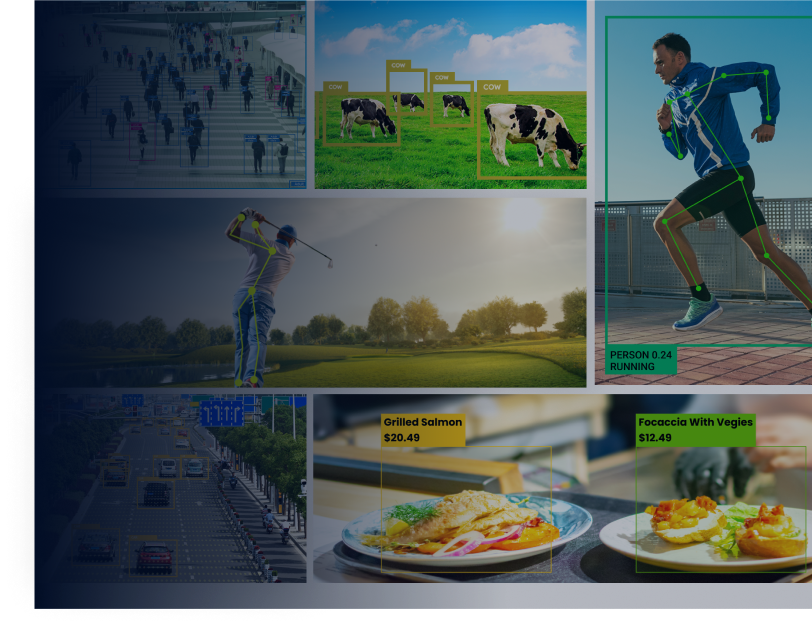Executive Summary
Healthcare is changing due to artificial intelligence (AI), and many medical specialties and professions are beginning to apply AI. With the use of artificial intelligence (AI), machine learning (ML), deep learning, and natural language processing (NLP), healthcare stakeholders and medical experts can now identify healthcare requirements and AI Healthcare Solutions more rapidly and accurately (DL). Decisions concerning health care or corporate operations can be made swiftly using data patterns. This blog will look at the 12 Ways Artificial Intelligence Will Affect Healthcare.
Introduction
The healthcare industry will be affected by new technology most significantly and may even change people’s lives. It will be easy and quick to diagnose illnesses, and treatment will be highly individualized. We’ll get accustomed to wearing technology and be able to detect illness before any symptoms appear. As clinical studies get quicker and more precise, new medications will reach the market at a rapid pace.
In the end, we shall be our health doctors.
These 12 instances show how AI in health care is already employed and provide a glimpse into our medical future.
1) Using personal devices and wearables to monitor the health
Nowadays, almost all customers have access to gadgets with sensors that can gather important information about their health. As a response, more and more health-related data is generated while on the go, whether it be through wearables that can continuously monitor a heartbeat or smartphones with step trackers. This data can be gathered, analyzed, and supplemented with patient-provided information via apps and other home monitoring devices to provide an unparalleled view of individual and population health. Artificial intelligence will be crucial for this vast and diverse treasure mine of data to yield useful insights.
2) Enhancing client relations
Urban lore does not give us a favorable impression of AI HealthCare Solutions. People are less inclined to boast about how appointive their doctors are than to complain about long lines and endless referrals to other specialists. But, as in every industry, time is money in the healthcare industry. Additionally, a shortage of time leads to improper service involvement.
A common use of AI in healthcare is to increase customer satisfaction. We are all familiar with systems that allow patients to book an appointment without having to wait on hold for hours on end. These platforms are elevated by AI in health care. Patients who use applications that offer real-time health monitoring do not need to see a doctor only to check their condition.
3) Delivering customized medical strategies and services
Artificial intelligence in healthcare applications has demonstrated the potential to forecast a patient’s response to a medication application. The system compares the diseases, treatments, and the progression of courses thanks to the cross-transfer of referenced data of patients bringing similar complaints. It leads to a tailored medical approach that offers a wide range of treatment alternatives in light of certain characteristics.
4) AI examines unstructured data.
While delivering high-quality, patient-centered care, clinicians need help to keep up with the most recent medical advancements. EHRs and biomedical data that have been curated by healthcare organizations and medical specialists can be quickly scanned using ML technology. In addition, AI can find, gather, store, and standardize medical data regardless of the format.
5) Drug development
Although AI in health care is not new, it has recently gained attention due to our greater access to computational power. Humans cannot match the speed at which AI can skim through data. Creating novel medications is one way that data analysis could revolutionize healthcare.
The technology may examine the information from a variety of sources, including clinical trials, patient health records, and genetic records, and help predict how medicine will impact a person’s cells and tissues, enhancing studies and paving the way for personalized therapy. As a result, drugs could reach the market considerably faster thanks to this more efficient approach.
6) Examine CT scans
Radiologists and cardiologists spend significant time identifying illnesses, which might be greatly reduced if AI could understand medical images and records. To diagnose ailments, radiologists must review hundreds of images daily, which can cause eye tiredness, resulting in errors.
By sifting through millions of photos and comparing them to other patient health data, IBM is creating an AI system to help radiologists. As the program is nearing the point of being ready for commercial deployment and advanced testing, the IBM team behind it is working to increase its accuracy.
7) Turning smartphone selfies into efficient diagnosis tools
Every year, mobile phone cameras improve, and they can take pictures suitable for analysis by algorithms powered by artificial intelligence. This movement has already benefited ophthalmology and dermatology. Even more, UK researchers have created a technology that can recognize developmental disorders by simply looking at pictures of a child’s face.
8) Making an accurate risk predictor out of the electronic health record
EHRs are a treasure trove of patient data, but developers and physicians have long struggled to access and analyze this wealth of knowledge. Moreover, it has been particularly challenging to comprehend how to engage in meaningful risk stratification because of problems with data quality and integrity and a jumble of data types.
9) Advancement of immunotherapy as a cancer treatment method
Immunotherapy is one of the most promising cancer treatment modalities. Patients may be able to defeat tough tumors by attacking malignancies with the body’s immune system. However, oncologists need a precise and accurate way to determine which patients would benefit from this approach, and only a small percentage of patients respond to current immunotherapy methods. The ability of machine learning algorithms to combine incredibly specific data may create new opportunities for customizing medicines to each patient’s genetic profile.
10) Reducing the dangers of bacterial resistance
The threat posed by antibiotic resistance to communities worldwide is growing. Multi-drug-resistant bacteria can wreak havoc in hospitals and result in hundreds of fatalities every year. Before the onset of symptoms, EHR data can be used to identify infection patterns and highlight patients who are at risk.
11) Increasing access to medical treatment in underdeveloped or developing areas
The need for more competent radiologists and ultrasound technologists in developing nations may be helped by artificial intelligence. For example, chest x-rays can examine personalized predictions of tuberculosis using diagnostic imaging technologies, frequently with a degree of accuracy comparable to people. An app might make this functionality available to providers in low-resource locations.
12) Developing more accurate pathologic image analytics
Pathologists are one of the most important sources of diagnostic information for healthcare professionals across the board. However, AI is better able to predict how quickly or slowly cancer will advance and how that can AI Impact Healthcare and how patients are treated based on an algorithm.
Conclusion:
Healthcare, an area where the major difficulty is the lack of time and skilled specialists, is moving toward artificial intelligence. Artificial intelligence applications in healthcare include accelerating and enhancing the effectiveness of key processes like diagnosis, disease detection, health risk assessment, drug development, administration, and communication. A society free of deadly diseases is no longer a pipe dream if we combine the incredible talent of researchers and doctors who work as their profession with the predictive analysis and calculation abilities of artificial intelligence. It is a fact that has long been anticipated and has just become clear to humanity.

Dawood is a digital marketing pro and AI/ML enthusiast. His blogs on Folio3 AI are a blend of marketing and tech brilliance. Dawood’s knack for making AI engaging for users sets his content apart, offering a unique and insightful take on the dynamic intersection of marketing and cutting-edge technology.











